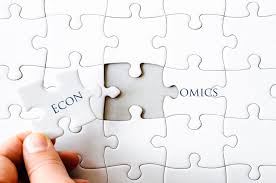In our last post, we spotlighted the need for Memphis and Shelby County to have a serious, creative economic development plan grounded in goal of competing in the global economy of the future than an economy anchored in the cheapness strategies of the past.
We wrote: “If one thing is clear, it is that whatever we are doing isn’t working. That’s why fresh thinking is needed about the way economic development should be practiced, what its goals should be, and how we compete in Memphis and Shelby County in a transformed economy.”
So, what are some of the principles that should be uppermost in mind for a detailed, comprehensive, interlocking economic plan? The following is our list (in no particular order and it is not intended to be exhaustive), so if you have your own ideas or list, we hope you’ll send them in.
Invest in universities and technology.
Universities and teaching hospitals are important assets for many cities, because they are vehicles for quality research that can be commercialized and patented. We have squandered the expertise, skills, and knowledge at University of Memphis for too long, and with new leadership, we need to invest in our primary source of talent so it can lead us in a better direction.
Support redevelopment in the urban core.
Memphis has significant underdeveloped and vacant land in the urban core that can be reused for economic growth. The infrastructure in these areas has already been paid for and its reuse makes the wisest investment of public funds.
Balance transportation policy.
It is now inarguable that sprawl is financially and environmentally unsustainable, and the MPO has been part and parcel of these policies. More than anything, it has continued spending of highways outside Memphis while ignoring the importance of public transit or the urban core’s needs.
Create technology clusters.
There has been progress made in this area, but we need to supercharge what’s being done. Too often, this is seen as the responsibility of this nonprofit organization or that one, and as a result, it gets mainly lip service when it comes to expanding the economy.
Emphasize local innovation.
The best answers to the future begin on our own streets today. Answers from another community that are simply transplanted or replicated here are less successful because they are artificial solutions. Better answers are produced organically and authentically through a program that seeds innovation and entrepreneurship and rewards creativity.
Understand our competitive context.
The first step in the journey to a better economy is to identify the unique assets – water, for example – that we have that can be leveraged for competitive advantage. We need to be strategic about what assets we have and shape a distinctive niche in the national and global economies built around them. These authentic assets are the fundamental building blocks for the future.
Fix the basics.
The best thing local government can do is get the basics right. Efficient services that respond to the needs of the city must create a value proposition for the amount of taxes paid. That said, all basic services, particularly those that contribute to healthy neighborhoods, should be funded at adequate levels commensurate with other similar governments.
Think and act regionally (but from the inside out).
The unit of currency in the global economy is the region. It is clear that the major city in the MSA and its suburbs are inextricably linked. New strategies are needed to create relationships and linkages beyond Shelby County and to find common ground on issues where all communities have a vested interest. That said, regional plans should work from the inside out, because Memphis and Shelby County remain the engine for the region’s economy.
Create vibrant cultural, artistic, and green assets.
These are the threads that hold together the fabric of the community. Many people treat these as luxuries, but they are instead crucial to creating the quality of life that fuels economic growth. Preserved and protected open spaces, safe and attractive public spaces, greenbelts, clean air and water, and outdoor recreation are not just valuable public assets. They are competitive advantages.
Think and act collaboratively.
Thinking and acting differently is at the heart of building a collaborative community. This requires a shift in some cases from traditional leadership models to a new environment of inclusion, mutual influence, and community building. Opening the door widely to all segments of the community and inviting new voices to engage in decision-making is the mark of a mature community.
Create a workforce for a 21st century global economy.
There’s no question that the communities that are the winners for the race for economic prosperity will be those with smart and skilled workers producing goods and services marked by innovation, knowledge, and quality. If we are content to compete on the basis of cheapness, we will not be competing with the cities we most want to emulate. This strategy involves stronger workforce development programs involving K-12, community college, and universities and colleges.
Compete on a global basis.
Our ambition must be to compete on a global platform with workers who can compete in this environment and with programs seeking foreign investment and emphasizing exports. Too often, international economic development is treated as an extension of traditional domestic economic development, and as a result, they often fail. We must have a plan of action to compete in the new world marketplace, particularly in helping business clusters gain access to global markets and finding opportunities for trade, investment and international partnerships.
Develop a powerful brand.
Communities are like businesses. They need a compelling brand. In this regard, Memphis and Shelby County have never figured out what our brand should be and what we should stand for. Our community is competing with others for tourism, for investment, for buyers of our products, and for workers. This branding question is a significant unresolved issue for our community.
Build an efficient infrastructure.
To compete on a global playing field, we must have an infrastructure that links our companies and products efficiently and effectively to the global marketplace. As long as Lamar Avenue remains in the sad condition that it is today, we are admitting that we are not serious about our infrastructure. As long as it takes 70 years to pave all city streets, we are falling short. But infrastructure in the digital age is about more than hard surfaces and we need to make sure we have the kinds of communications networks and technologies that connect and make our community competitive.
Reform incentives.
There is little question that tax freezes will continue as a tool for economic growth, but there is equally little question that they should be invested more strategically and more sparingly. We need to move the conversation past simplistic ideas of tax competitiveness and to the subject of economic competitiveness and opportunity. We need to move the conversation past “how much do we have to pay you to love us” to how can we develop a community where companies want to locate and expand because we have the right fundamentals for them.
Our Needs
We need to quit trying to be cheaper and get better. We need to foster a culture of entrepreneurship. We need to recruit and retain talent. We need to reinvent and digitize government.
We need to invest in people. We need to create high-tech magnets. We need to treat citizens as customers. We need to incentivize small businesses. We need to create a green infrastructure and energy efficient economy. We need to avoid an adversarial regulatory position. We need to encourage the use of brownfields.
In short, we need a high performance economic development plan and we needed it yesterday.





…but how many times have we been here- or maybe the more accurate question is how LONG have we been at this exact spot? Fumbling around with the same ideas and goals that we all agree with while those with the resources and positions to implement these strategies pay lip service to the concept by simply acknowledging the need, or worse yet- commissioning a 6 month study which places those exact words on high quality paper with generic images of young, smiling parents, professionals and children as they enjoy some nondescript activities? The final reports seem destined to gather dust on someone’s coffee table or to become gradually buried under other promotional and marketing material churned out by the Chamber.
The region is akin to a stereotypical victim trapped and sinking in quicksand. “We” are quick to grasp at the false and distracting escape offered by municipal school districts, random economic development projects such as oven manufacturers, unproven “green” car assembly plants, providing tax breaks to jobs that are already in place and airport gates. The more we struggle, the deeper we sink while quick observation, evaluation and focused effort would likely lead to our salvation. The vine is there (damn it!), but it is going to require exerting some real physical force over a longer period of time than we prefer and we may lose a shoe, a watch and our shirt in the process. How do we snap “leaders” out of the survival mode in which they seem to be entrenched when the fruit yielded by pursuing such goals will require a timeframe that spans multiple election cycles and thus the tough decisions that must be made stand a decent chance of costing them their political careers? How do you quickly reform a system that is built upon a foundation defined by a lack of change (or painstakingly slow evolution), is increasingly notorious for its devotion to self-preservation and is populated and lead by a large group of very loud individuals who are always prepared to defend the status quo?
Except in this case the victim is more like an abused spouse trying to figure out how to get out of the relationship. Step one, better self concept and sense of worth.
Urbanut is right–“fumbling around with the same goals”
Try something different: drop the central-planning-government-solution-to-everthing method. It has failed.
For example, read this:
http://mises.org/daily/6489/Declare-Detroit-a-Free-City